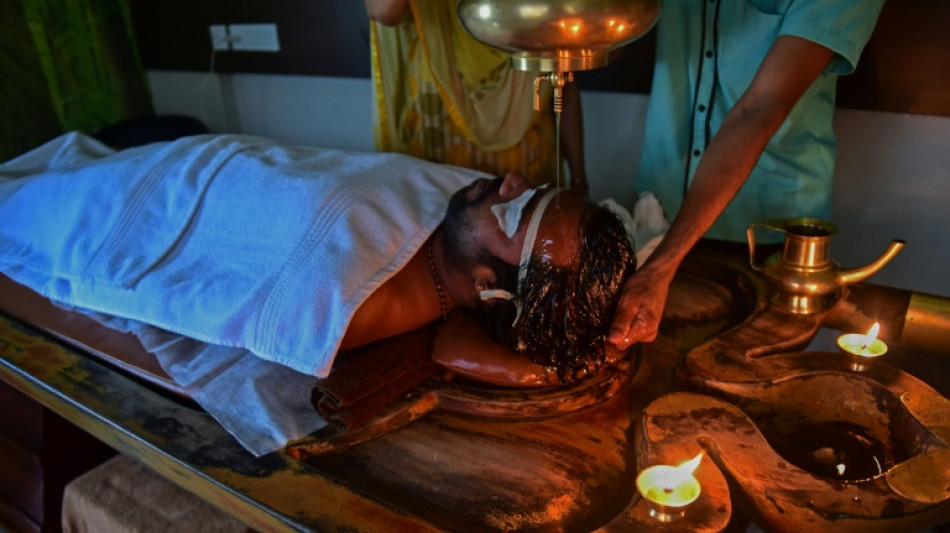
-
 Most stock markets rise despite China data, eyes on US reports
Most stock markets rise despite China data, eyes on US reports
-
TotalEnergies profits drop as prices slide

-
 Volkswagen says tariffs will dampen business as profit plunges
Volkswagen says tariffs will dampen business as profit plunges
-
Jeep owner Stellantis suspends 2025 earnings forecast over tariffs

-
 China's Shenzhou-19 astronauts return to Earth
China's Shenzhou-19 astronauts return to Earth
-
French economy returns to thin growth in first quarter

-
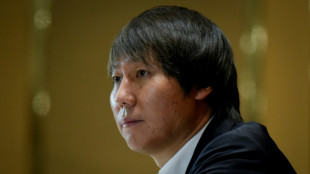 Ex-Premier League star Li Tie loses appeal in 20-year bribery sentence
Ex-Premier League star Li Tie loses appeal in 20-year bribery sentence
-
Belgium's green light for red light workers

-
 Haliburton leads comeback as Pacers advance, Celtics clinch
Haliburton leads comeback as Pacers advance, Celtics clinch
-
Rahm out to break 2025 win drought ahead of US PGA Championship

-
 Japan tariff envoy departs for round two of US talks
Japan tariff envoy departs for round two of US talks
-
Djurgarden eyeing Chelsea upset in historic Conference League semi-final

-
 Haliburton leads comeback as Pacers advance, Pistons stay alive
Haliburton leads comeback as Pacers advance, Pistons stay alive
-
Bunker-cafe on Korean border paints image of peace
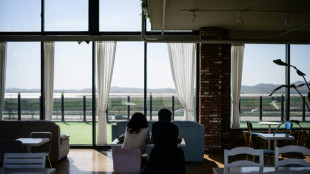
-
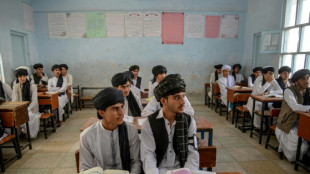 Tunics & turbans: Afghan students don Taliban-imposed uniforms
Tunics & turbans: Afghan students don Taliban-imposed uniforms
-
Asian markets struggle as trade war hits China factory activity

-
 Norwegian success story: Bodo/Glimt's historic run to a European semi-final
Norwegian success story: Bodo/Glimt's historic run to a European semi-final
-
Spurs attempt to grasp Europa League lifeline to save dismal season

-
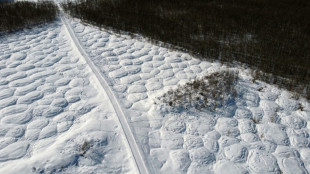 Thawing permafrost dots Siberia with rash of mounds
Thawing permafrost dots Siberia with rash of mounds
-
S. Korea prosecutors raid ex-president's house over shaman probe: Yonhap
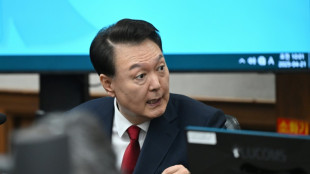
-
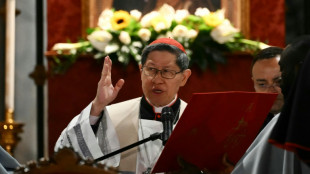 Filipino cardinal, the 'Asian Francis', is papal contender
Filipino cardinal, the 'Asian Francis', is papal contender
-
Samsung Electronics posts 22% jump in Q1 net profit
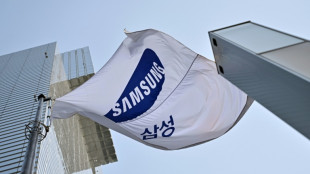
-
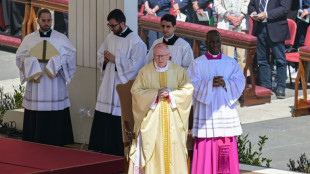 Pietro Parolin, career diplomat leading race to be pope
Pietro Parolin, career diplomat leading race to be pope
-
Nuclear submarine deal lurks below surface of Australian election
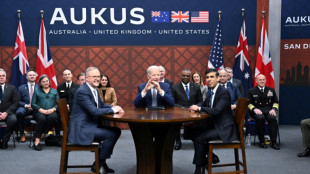
-
 China's manufacturing shrinks in April as trade war bites
China's manufacturing shrinks in April as trade war bites
-
Financial markets may be the last guardrail on Trump

-
 Swedish journalist's trial opens in Turkey
Swedish journalist's trial opens in Turkey
-
Kiss says 'honour of a lifetime' to coach Wallabies at home World Cup
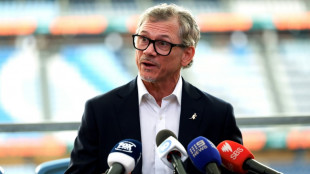
-
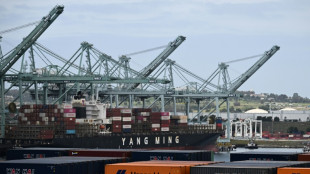 US growth figure expected to make for tough reading for Trump
US growth figure expected to make for tough reading for Trump
-
Opposition leader confirmed winner of Trinidad elections
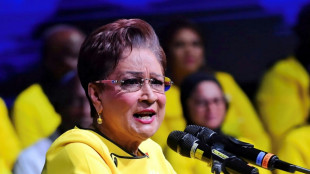
-
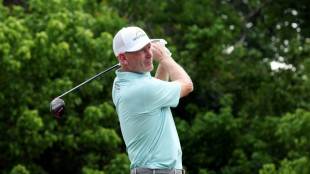 Snedeker, Ogilvy to skipper Presidents Cup teams: PGA Tour
Snedeker, Ogilvy to skipper Presidents Cup teams: PGA Tour
-
Win or bust in Europa League for Amorim's Man Utd

-
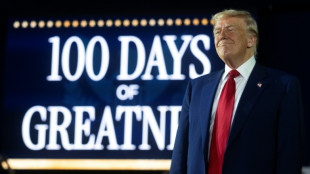 Trump celebrates 100 days in office with campaign-style rally
Trump celebrates 100 days in office with campaign-style rally
-
Helium One Global Ltd Announces Jackson-27 Flow Test Results & Gas Analysis Update

-
 Argo Blockchain PLC Announces Financial Update and Listing Suspension Request
Argo Blockchain PLC Announces Financial Update and Listing Suspension Request
-
Guardian Metal Resources PLC Announces Tempiute Mine Project - Geological Update

-
 Agronomics Limited Announces BlueNalu Expands Partnership with Nomad Foods
Agronomics Limited Announces BlueNalu Expands Partnership with Nomad Foods
-
Helium One Global Ltd Announces Jackson-2 Spud at Galactica Project

-
 Global Industry Leaders to Address Critical Trade Changes at Licensing Expo 2025
Global Industry Leaders to Address Critical Trade Changes at Licensing Expo 2025
-
Top Cuban dissidents detained after court revokes parole
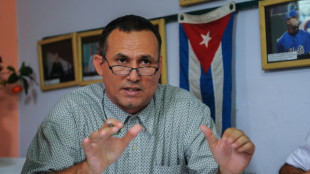
-
 Arteta urges Arsenal to deliver 'special' fightback against PSG
Arteta urges Arsenal to deliver 'special' fightback against PSG
-
Trump fires Kamala Harris's husband from Holocaust board
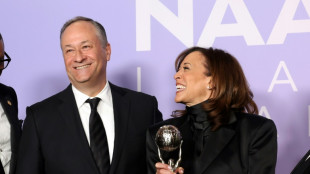
-
 Pakistan says India planning strike as tensions soar over Kashmir attack
Pakistan says India planning strike as tensions soar over Kashmir attack
-
Weinstein sex attack accuser tells court he 'humiliated' her
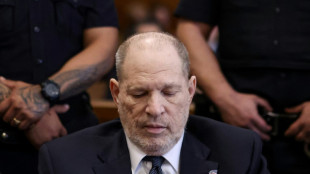
-
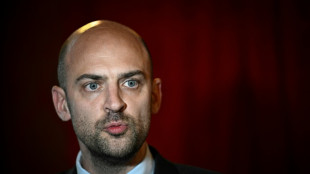 France accuses Russian military intelligence over cyberattacks
France accuses Russian military intelligence over cyberattacks
-
Global stocks mostly rise as Trump grants auto tariff relief
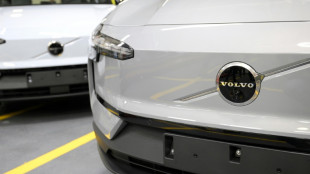
-
 Grand Vietnam parade 50 years after the fall of Saigon
Grand Vietnam parade 50 years after the fall of Saigon
-
Trump fires ex first gentleman Emhoff from Holocaust board
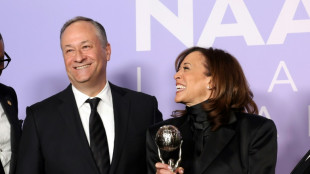
-
 PSG 'not getting carried away' despite holding edge against Arsenal
PSG 'not getting carried away' despite holding edge against Arsenal
-
Cuban dissidents detained after court revokes parole
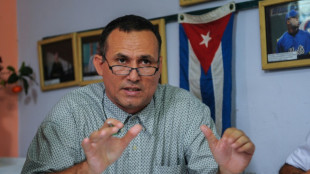

WHO holds first traditional medicine summit
The World Health Organization holds its first summit on traditional medicine on Thursday, with warnings that treatments rooted in natural products can be effective alternative healthcare only if scientifically proven.
Traditional medicines are a "first port of call for millions of people worldwide", the UN health agency said, with the talks in India bringing together policymakers and academics aiming to "mobilise political commitment and evidence-based action" towards them.
WHO chief Tedros Adhanom Ghebreyesus said traditional medicine could boost healthcare "access gaps", but was of value only if used "appropriately, effectively, and above all, safely based on the latest scientific evidence", in a statement ahead of the conference.
The two-day WHO Traditional Medicine Global Summit takes place alongside a meeting of G20 health ministers in the Indian city of Gandhinagar.
"Advancing science on traditional medicine should be held to the same rigorous standards as in other fields of health," WHO research chief John Reeder said in a statement.
"This may require new thinking on the methodologies to address these more holistic, contextual approaches and provide evidence that is sufficiently conclusive and robust to lead to policy recommendations."
Indian Prime Minister Narendra Modi, who is expected to open the WHO conference via a video message, has repeatedly promoted the health benefits of yoga, extolling it as a "panacea" for stress and even hate.
The summit, set to become an annual event, follows the opening last year of a WHO Global Centre for Traditional Medicine, also in India's Gujarat state.
- Lack of regulatory oversight -
While traditional medicines are widely used in some parts of the world, they also face fierce criticism.
The UN health agency defines traditional medicine as the knowledge, skills and practices used over time to maintain health and prevent, diagnose and treat physical and mental illness.
But many traditional treatments have no proven scientific value and conservationists say the industry drives a rampant trade in endangered animals -- including tigers, rhinos and pangolins -- threatening the existence of entire species.
Use of homemade remedies soared during the Covid-19 pandemic, including a green herbal drink based on Artemisia that was promoted by Madagascar's president as a cure.
The plant has a proven efficacy in malaria treatment, but its use to combat Covid was widely scorned by many doctors.
In China, traditional medicine has a distinguished history, but top European medical bodies have previously demanded it be subject to the same regulatory oversight as conventional Western methods.
Of the WHO's 194 member states, 170 acknowledged their use of traditional and complementary medicine since 2018, but only 124 reported having laws or regulations for the use of herbal medicines -- while only half had a national policy on such methods and medicines.
"Natural doesn't always mean safe, and centuries of use are not a guarantee of efficacy; therefore, scientific method and process must be applied to provide the rigorous evidence required," the WHO said.
Some 40 percent of approved pharmaceutical products currently in use derive from a "natural product basis", according to the WHO, citing "landmark drugs" that derive from traditional medicine, including aspirin, drawing on formulations using willow tree bark.
P.Martin--AMWN

